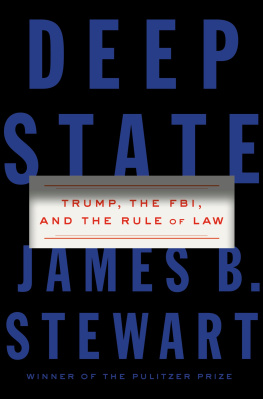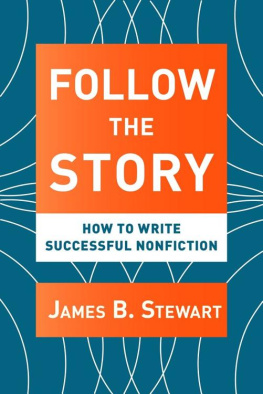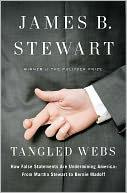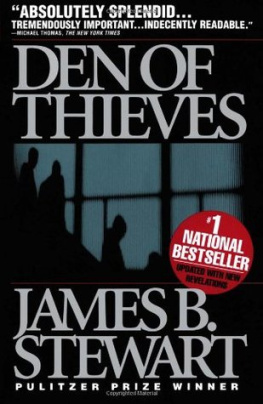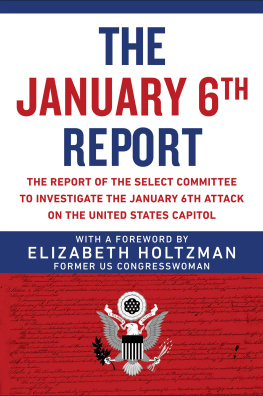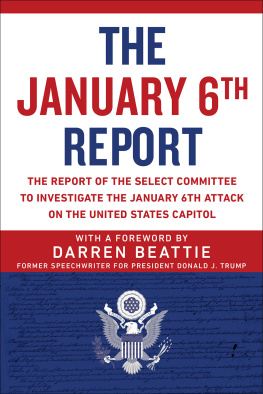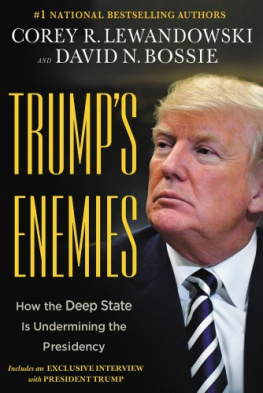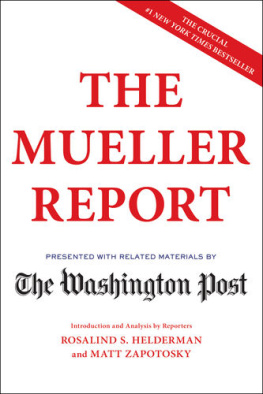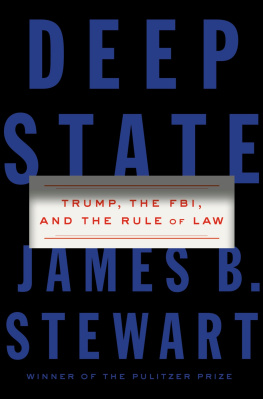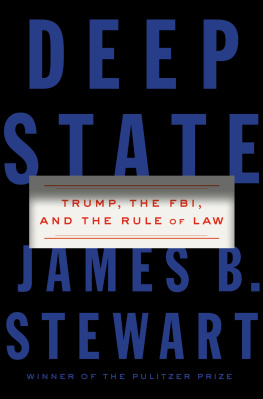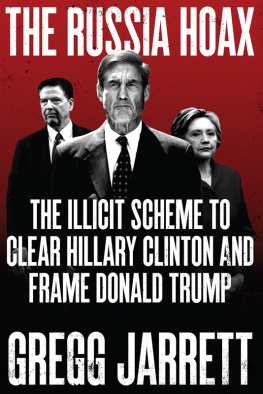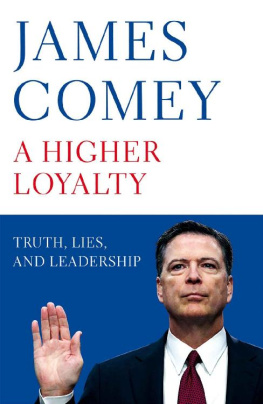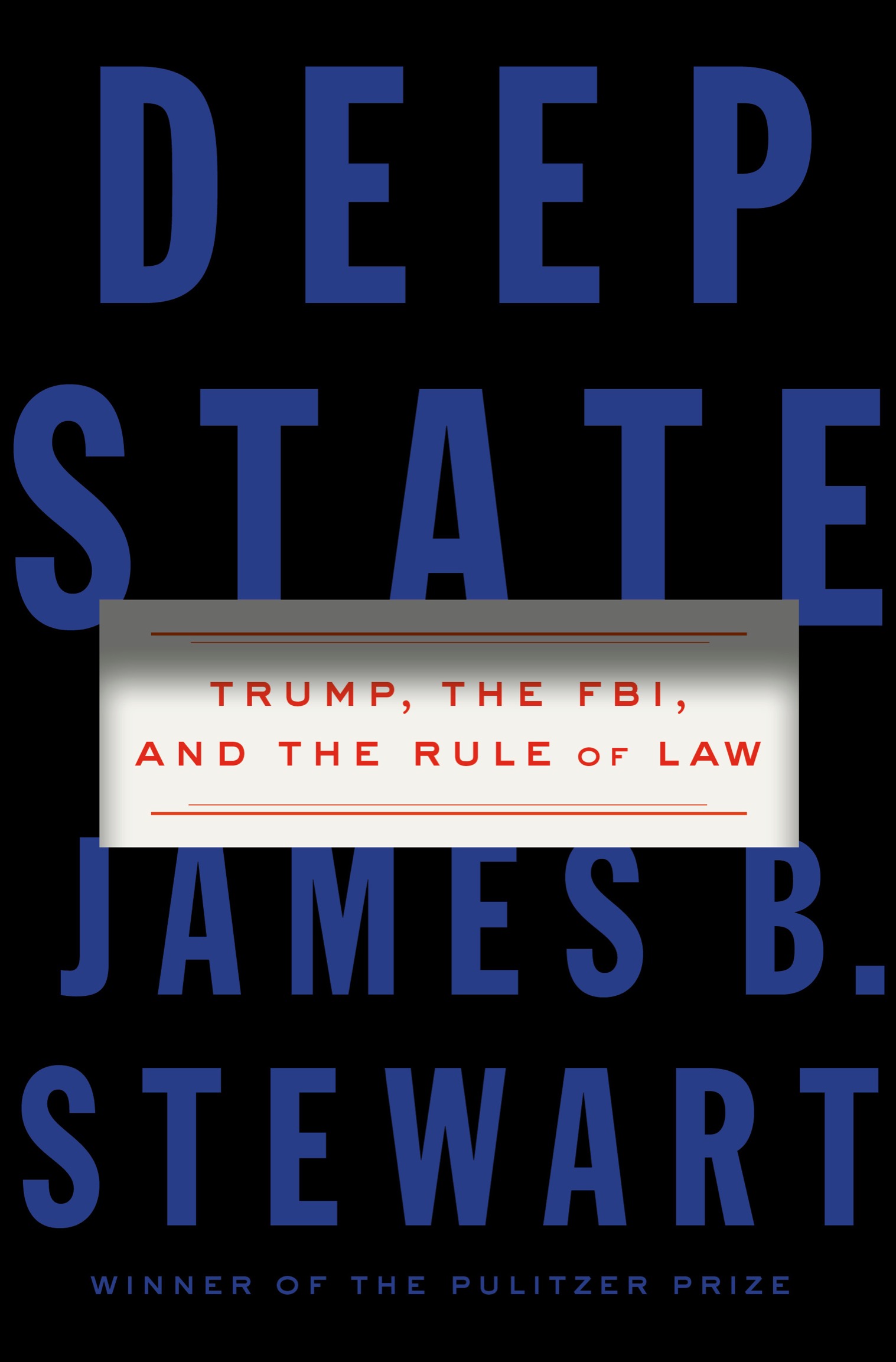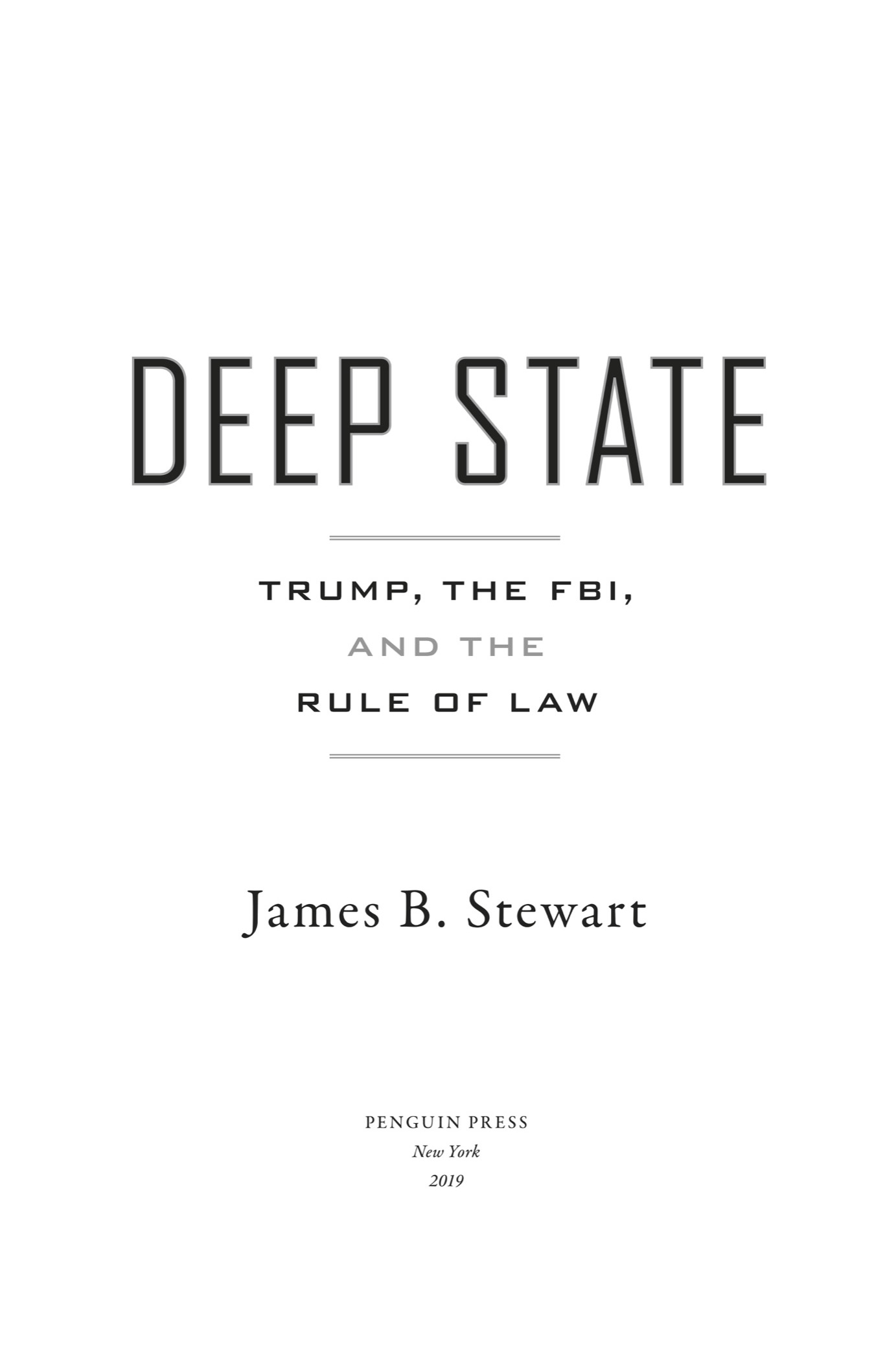ALSO BY JAMES B. STEWART
Tangled Webs: How False Statements Are Undermining America: From Martha Stewart to Bernie Madoff
Disney War: The Battle for the Magic Kingdom
Heart of a Soldier: A Story of Love, Heroism, and September 11th
Blind Eye: The Terrifying Story of a Doctor Who Got Away with Murder
Blood Sport: The President and His Adversaries
Den of Thieves
The Prosecutors: Inside the Offices of the Governments Most Powerful Lawyers
The Partners: Inside Americas Most Powerful Law Firms
PENGUIN PRESS
An imprint of Penguin Random House LLC
penguinrandomhouse.com
Copyright 2019 by James B. Stewart
Penguin supports copyright. Copyright fuels creativity, encourages diverse voices, promotes free speech, and creates a vibrant culture. Thank you for buying an authorized edition of this book and for complying with copyright laws by not reproducing, scanning, or distributing any part of it in any form without permission. You are supporting writers and allowing Penguin to continue to publish books for every reader.
ISBN 9780525559108 (hardcover)
ISBN 9780525559115 (ebook)
Cover design by Darren Haggar
Version_1
Patriotism is supporting your country all the time, and your government when it deserves it.
MARK TWAIN (Tweeted by Donald J. Trump, January 29, 2014)
CONTENTS
INTRODUCTION
Given his towering stature, the six-foot, eight-inch, fifty-six-year-old James Comey, director of the Federal Bureau of Investigation, cut a striking figure in the Los Angeles FBI field offices command center room. At the back, a bank of television monitors kept agents and employees apprised of the latest news developments around the globe that might impact them at any moment, from natural disasters to terrorist attacks.
Dozens of employeesmostly custodial and communications staff (Comey had already met in person with everyone with a desk or office)were sitting in rapt attention as he began his talk about the FBIs new, shorter, simpler mission statement. It was about 2:15 p.m. on May 9, 2017.
Its hard to exaggerate the importance of a field visit to the FBIs rank and file, especially one from Jim (as everyone knew him, though hardly anyone ever called him that, using Sir or Director instead). When Comey replaced the much-revered and exacting Robert Mueller as director in 2013, four years earlier, hed aimed to bring greater warmth and a sense of camaraderie to the position and to an organization long dominated by authoritarian directors (all white males) whod run it like a quasi-military organization.
The FBI was still disproportionately white and male, and politically conservative, for that matter, a state of affairs that was one of the reasons why Comey was in Los Angeles. That evening he was going to speak to more than seven hundred minority candidates for the bureau as part of a diversity recruiting event. Comey had flown in that morning on one of the Justice Departments two Gulfstream G550 private jets, a perquisite of the FBI director (the attorney general has the use of the other).
When he arrived at the Los Angeles office that afternoon, Comey went from floor to floor and desk to desk, doing his best to greet and shake hands with each employee, as he did on every field visit. Tell me your story was one of his favorite conversational gambits, one that invariably drew revealing details and he thought helped establish a personal bond with employees. Comey deployed a natural charm, a genuine curiosity about the people who worked for the bureau, and a disarming manner that sometimes belied his keen intellect and demanding standards. Perhaps more than anything, he oozed rectitude, a quality that was both inspiring and, at times, intimidating.
The resulting loyalty, respect, and devotion from the vast majority of the rank and file had stood him in good stead over the past year, which had been one of the most difficult and controversial since the bureau was founded in 1908. In July 2015, Comey and the FBI had been thrust into a highly public investigation of Hillary Clinton, the future Democratic presidential nominee, on her use of a private email server. Comeys decision to inform Congress that the investigation had been reopenedthree months after announcing that Clinton wouldnt be charged with a crime, and just days before the electionwas seen by many as tilting the election to Donald J. Trump.
That controversial decision had already been overshadowed by far more serious allegations concerning Trumps ties to Russia. Unknown to the public, that investigation had begun well before the election, meaning that Comey and the FBI were scrutinizing both parties nominees for president at the same time, something without precedent in American history. It was a role Comey neither sought nor relished, later saying the possibility that hed influenced the outcome of the election made him nauseous.
Unlike the highly public Clinton proceedings, the Trump-Russia affair was shrouded in the bureaus traditional investigative secrecy. Although there was widespread reporting and discussion of Russian attempts to interfere in the 2016 presidential election, and it was common knowledge that Vladimir Putin had favored Trump over Clinton, it was only on January 10, 2017, that BuzzFeed News published a controversial dossier depicting scandalous ties between Trump and Russia, and it wasnt until March 20, in an appearance before the House Intelligence Committee, that Comey had publicly confirmed the existence of a formal FBI investigation into possible collusion between the Trump campaign and Russia. Even then, he declined to say whether Trump himself was one of the individuals the FBI was examining. Comeys refusal to clear him had infuriated Trump, because it left open the distinct possibility that he was a subject of the investigation.
By the time of his trip to Los Angeles, it was no secret, least of all to Comey himself, that his relationship with Trump was tense at best. Many were surprised that Trump had kept him on as FBI director, even though his ten-year term had nearly seven years remaining. Their personalities and characters were pretty much polar opposites. If Comey embodied rectitude, Trump would have to be described as louche, given his crude comments, propensity to exaggerate, indifference to factual accuracy, preening vanity, and friends and associates of dubious character. Comey found it hard to be in the same room with the man.
That wasnt necessarily a bad thing. Comey didnt want to be Trumps friend or part of any White House inner circle. While his relationship with President Barack Obama had been cordial, their personal interactions had been infrequent.
There was much to be said for an FBI director keeping his distance from the president. The FBI director might have been a presidential appointee who reported to the attorney general, but the position had a long tradition of independence, solidified by the lengthy ten-year term.
As Comey began his speech in Los Angeles, he wasnt the least bit worried about his job. Only one FBI director had ever been firedWilliam Sessions, by Bill Clinton in 1993, early in his first term, and only after the attorney general at the time, Janet Reno, asked for his resignation in the midst of a scandal involving the directors alleged misuse of government resources for personal purposes. Sessions (no relation to Jeff Sessions, Trumps first attorney general) had hotly denied the charges and refused to resign, forcing Clinton to remove him. In his stead, Clinton named a former FBI agent of unimpeachable integrity, Louis Freeh, who within weeks of his appointment was investigating Bill and Hillary Clintons role in the Whitewater affair, the first of a series of scandals that culminated with Monica Lewinsky and Paula Jones. Clinton would surely have liked to fire Freehand their relationship was tensebut he was too politically astute to do so.

